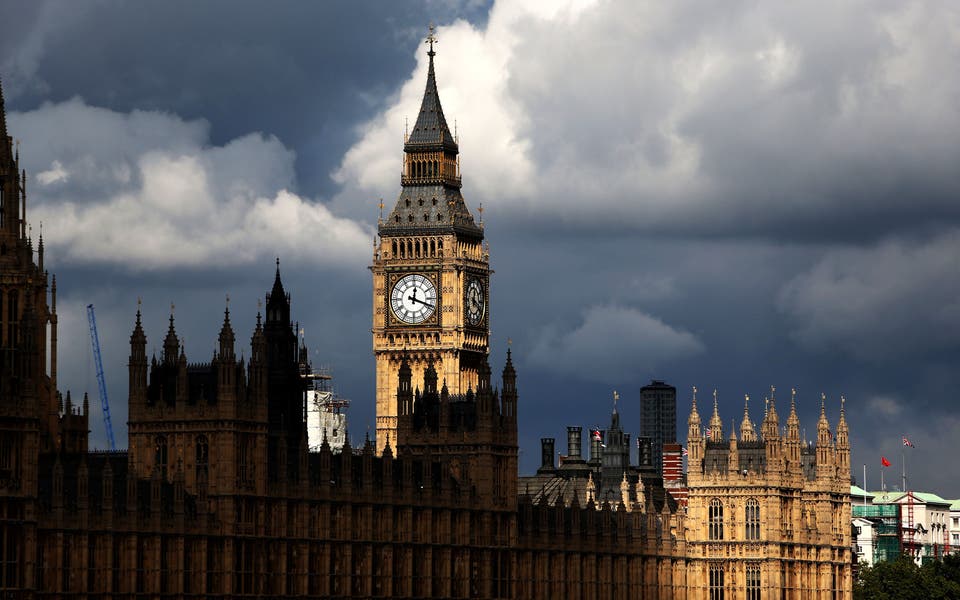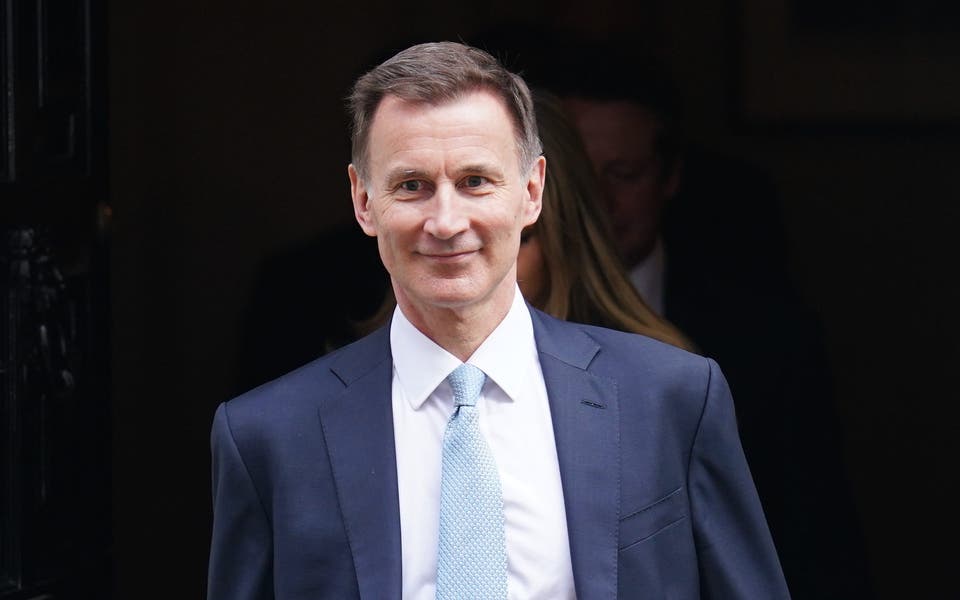Tory MPs demand review of Bank of England independence
A group of Conservative backbenchers have demanded a review of the Bank of England’s independence, accusing it of costing taxpayers thousands of pounds.
The group of 44 MPs said they were “deeply concerned that the Bank of England is out of step with the central banks of most major economies” in its approach to quantitative tightening (QT), the selling of Government bonds the Bank had previously bought up in an effort to stabilise the economy.
In a letter to the Chancellor, the MPs criticised the Bank for making taxpayers liable for any losses it made in selling the bonds – which meant the public faced significant costs “with no public or parliamentary debate or consultation”.
They endorsed a report by pressure group Conservative Way Forward, which said making taxpayers liable for losses would cost households £4,361 each between 2023 and 2025.
The report also blamed the Bank for the UK experiencing higher inflation than comparable countries, saying this had cost families £1,185 over 2022 and 2023, and called for a Treasury-led review of the Bank’s QT programme, its mandate and its independence.
The Bank of England has been independent of government since 1997, with interest rates set by its Monetary Policy Committee aimed at keeping inflation around 2%.
A spokesperson for the Bank of England said the previous programme of quantitative easing had seen significant revenues flow to the Treasury in the knowledge that this would be reversed in future, and the overall profit or loss from the scheme was still uncertain.
They added that the profit and loss figures did not provide an assessment of the impact of the bond-buying quantitative easing programme on reducing borrowing costs and supporting the economy over the past 15 years.
The 44 MPs included former Tory leader Sir Iain Duncan Smith, former cabinet ministers Sir Jacob Rees-Mogg, Sir Gavin Williamson, Suella Braverman and Robert Jenrick, and other backbenchers seen as being on the right of the party.
Read More
Sir Jacob accused the Bank of “miserable incompetence” that made Nick Leeson, the rogue trader who bankrupted Barings Bank in 1995, “look clever”.
Several of the MPs who signed the letter to the Chancellor, including Sir Jacob, have previously criticised the Bank of England, blaming it for the high inflation experienced by the UK in recent years and in some cases accusing Bank leaders of working against the economic policies of former prime minister Liz Truss.
One of the MPs, Marcus Fysh, described the Bank’s quantitative easing policy as a “nightmare” and said it had been “far wider of the mark on controlling inflation than other central banks around the world”.
He added: “If we’re going to hand the keys to our monetary policy to the Bank of England, it’s vital there’s rigorous accountability and that it demonstrates monetary expertise.”
Ed Barker, chief executive of Conservative Way Forward, said institutions must be “held to account for their performance” on inflation.
He added: “Forcing British taxpayers to bail out the Bank is unique amongst the world’s advanced economies. The world’s other major central banks are shielding their populations from any losses involved in QT.
“Why one of the world’s oldest central banks is ignoring the Fed (US Federal Reserve Bank) and the ECB (European Central Bank) and adopting the practice of the central banks of Albania and Azerbaijan is beyond me.”
A spokesperson for the Bank of England said: “Up until September 2022, the Bank sent £123.9 billion to HM Treasury, and it was always recognised that payments would reverse in future. The Bank also pays billions of pounds in seigniorage income from the issuance of banknotes to the Treasury which other central banks retain to balance their books.
“Future payments are highly uncertain and stopping active sales won’t necessarily change the lifetime profit or loss of the APF.”
A spokesperson for the Treasury said: “The separation of fiscal and monetary policy is a key feature of the UK’s economic framework, and essential for the effective delivery of monetary policy. Interfering with decisions on QT, including on the pace and scale of unwind, would undermine that separation.
“That is why it is vital the Government underwrites the Bank of England’s asset purchases so it can meet its monetary policy objectives, including returning inflation to 2% – and it is good news that it is back to 3.2% with the UK economy turning a corner.
“More than £120 billion has been transferred to the Treasury from the Bank of England between 2012 and 2022. However, it was always expected that losses would be incurred when this was unwound, and any future gains or losses are highly uncertain.”
The Treasury also disputed some of the claims made in the Conservative Way Forward report, saying the central banks of New Zealand and Sweden were also pursuing a similar QT programme, and ending the scheme would not “save” money that the Government could spend elsewhere, only push the losses back beyond the five years the OBR forecasts for.



